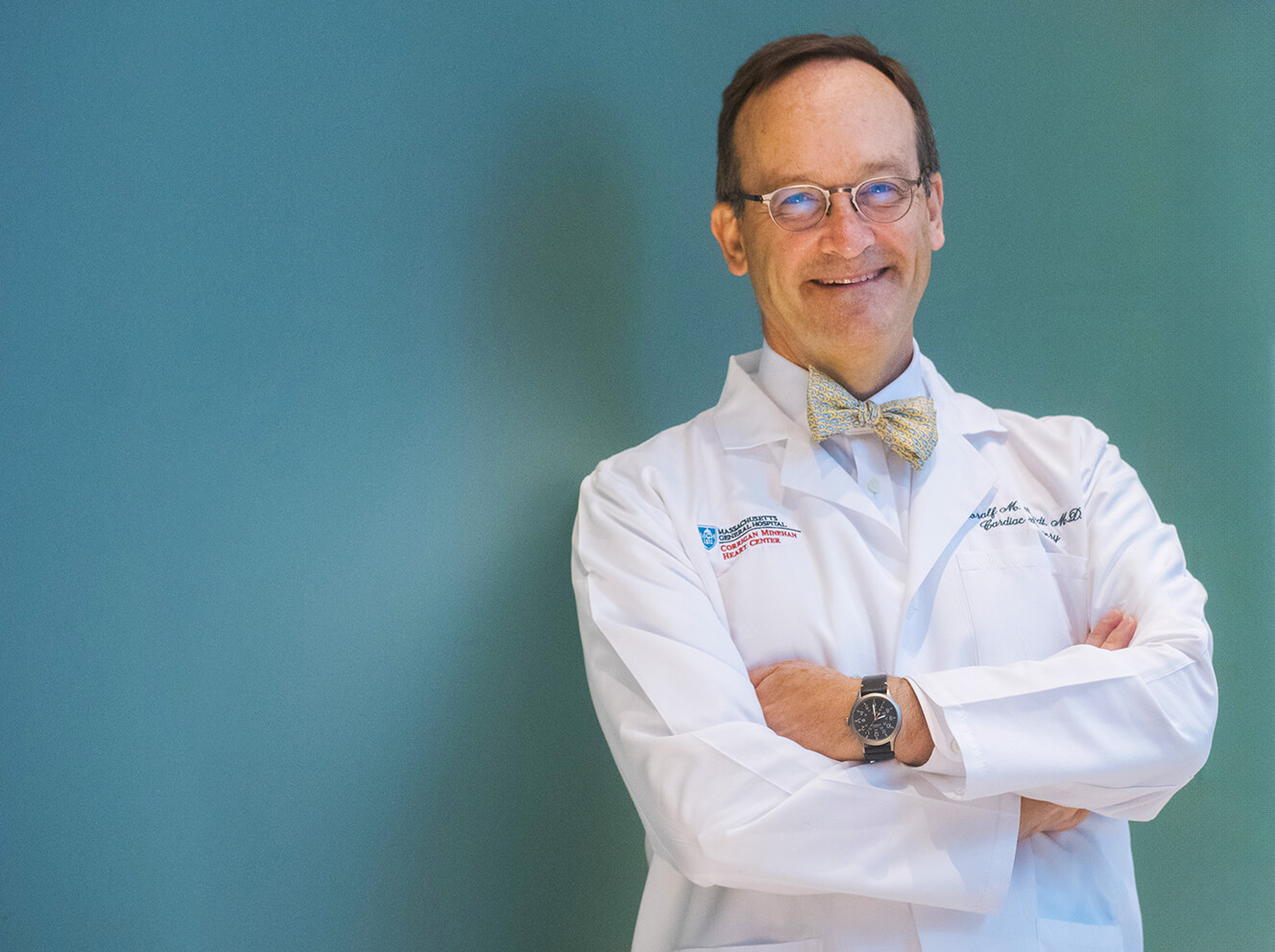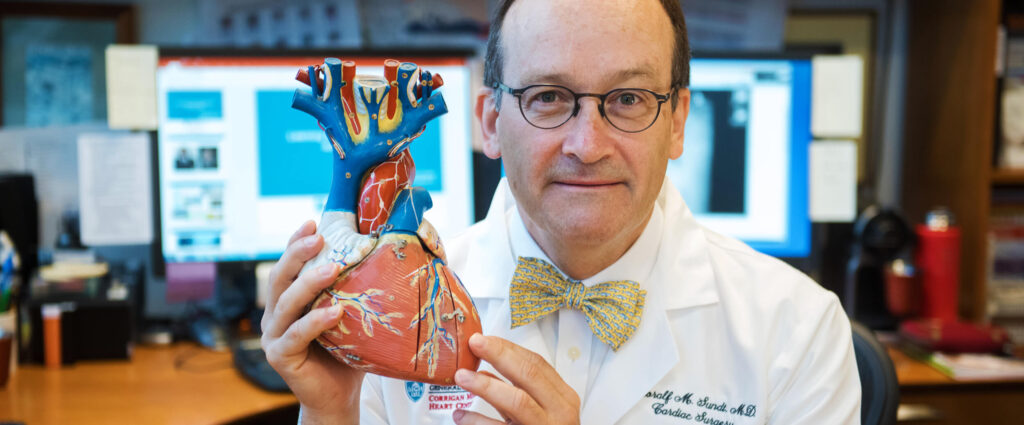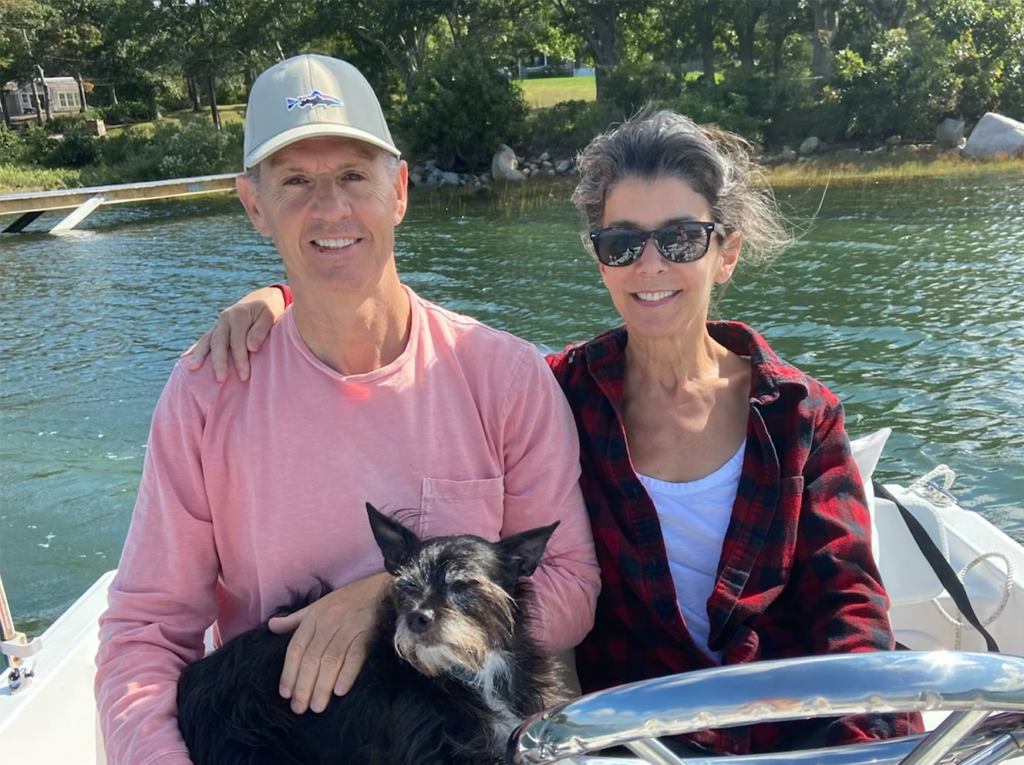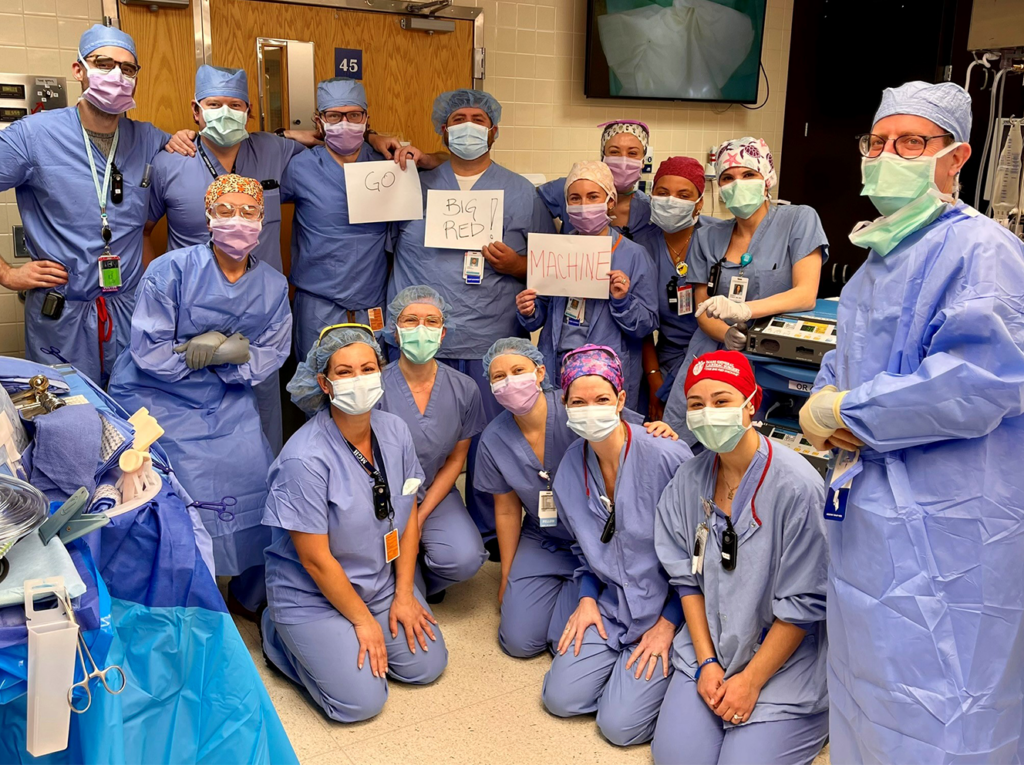“Cardiovascular care has advanced dramatically in just the past decade,” says Thoralf Sundt, III, MD, chair of Cardiac Surgery in the Corrigan Minehan Heart Center and Mass General Brigham Enterprise director for Cardiac Surgery Clinical Service. “Beyond surviving their episode, people want to be restored to the quality of life they enjoyed before disease. Our multidisciplinary research and care teams are creating those opportunities.”
Recent innovations have enabled less invasive interventions that reduce procedural trauma and shorten recovery time to restore patients to full function. “Our cardiac surgeons and interventional cardiologists work hand in hand to improve patient care, whether focused on catheter-based interventions to treat coronary artery disease or the implantation of mechanical support devices to strengthen a weakened heart,” says Dr. Sundt.
As medical and surgical care become increasingly combined, Corrigan Minehan Heart Center leadership has merged care environments: A single Heart Center Intensive Care Unit, which is a focused alternative to separate coronary care and surgical ICUs, and new imaging-capable hybrid operating rooms are innovative spaces planned within the Phillip and Susan Ragon Building. The West tower of the Ragon Building will be dedicated to cardiovascular care, providing a welcoming environment for patients while allowing faculty and staff to build upon collaborations among cardiology, cardiac surgery, vascular surgery and imaging.
“The new building spaces will allow efficient, free flow of multidisciplinary staffing among sites of care,” says Dr. Sundt. These environments break down silos and provide flexibility, allowing a broad team of specialists — anesthesiologists, pulmonologists, nephrologists, cardiologists, surgeons, physical and respiratory therapists — to work together to provide comprehensive care.
In the near future, only the sickest cardiovascular care patients will spend time in the hospital. Telehealth has already eased the burden on patients of travelling to many appointments. Increasingly, technology advances allow clinicians to remotely monitor and analyze health data in real-time. Very soon, chronic disease management will include constant monitoring and evaluation using an at-home suite of health tools, such as electrocardiogram and heart and lung sound monitors. Medical applications and artificial intelligence can further aid remote co-management with local cardiologists. With these shifts, more patients will remain or recover in the comfort of their homes, and more patients will be able to access Mass General’s expertise no matter where they live.
“We are collaborating broadly with engineers, data scientists and others, both within Mass General and at other research and academic institutions, to develop translational engineering programs that will move the most exciting new discoveries from the bench to the bedside quickly — providing a range of support tailored to the innovator’s needs, from engineering through business development,” Dr. Sundt says.
To find out how you can help support cardiac care at Mass General, contact us.





